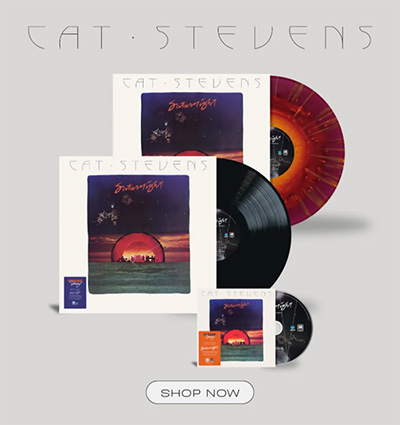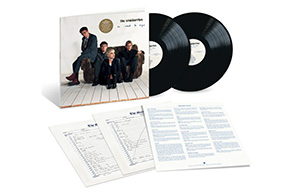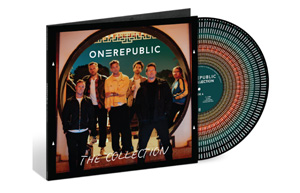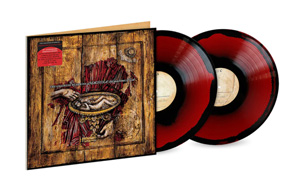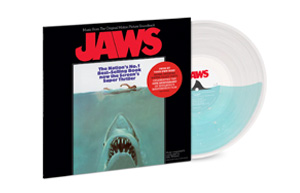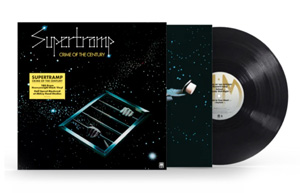All Her Own Work: The Acoustic Sandy Denny

Hailed as one of the finest singer-songwriters of her generation, in a few short years Sandy Denny helped shape the direction of British folk-rock legends Fairport Convention, and also embarked on a solo career that saw her write some of her most affecting and timeless material.
Due for release on Friday 22 April, I’ve Always Kept A Unicorn: The Acoustic Sandy Denny is as 2CD collection of demos, acoustic recordings and live performances that reveal her music at its most unadorned and personal. As noted by Sandy biographer Mick Houghton, whose superlative study of Sandy’s life and work lends the collection its title (and is now available in paperback through Faber & Faber), “In the last few years, people have been appreciating Sandy more for her songwriting… If anything, this collection makes it easier to hear the songs themselves because they’re more naked than ever before.”
With his unique insight into Sandy Denny’s music, Houghton tells uDiscover why I’ve Always Kept A Unicorn is an essential addition to Denny’s body of work…
Sandy started out playing around London’s folk clubs in the mid-60s. How much do these demos tap into those roots?
To some extent, in her early days she wasn’t really a songwriter – not a prolific one. She did write the most famous song she’s known for, ‘Who Knows Where The Time Goes?’, when she was 18, in 1965, which is remarkable in itself. But at that time the folk and pop worlds were so distant from each other. Anyone outside of the folk scene wouldn’t have known who she was.
What’s important about the folk world was that it had the first generation of singer-songwriters, who were all men – Bert Jansch, Jackson C Frank, who was her boyfriend for a while; Sandy met Paul Simon, Roy Harper – and I think that probably gave her the confidence to write songs. The unique thing is that she was the only female songwriter at that point. I don’t think she saw herself as a “female songwriter” – all her role models were men, and I don’t think she made a distinction.
So the folk scene gave her the impetus to start writing her own songs?
That’s right. But also I think the folk idiom was very much the idiom that singer-songwriters came out of, both in the UK and in America, so it gave her a language to relate to. But the other thing to bear in mind is that, at the point when she joined Fairport Convention, they didn’t know who she was, even though she was quite well known on the folk scene… Fairport opened an entirely new world for her, but I think the shock – and one of the reasons she left them when she did – was that after making three albums with them in the space of 18 months, Leige & Lief was a collection of traditional folk songs with no outlet for her own songwriting, and at that point she felt that’s what she’d left behind.
Interestingly, after she left Fairport, and after the first Fotheringay album, she only actually recorded one more folk song, ‘Blackwaterside’, on her first solo album. But, at the same time, she never left folk music behind. I think it was still really important to her. She took the language, she took the imagery, but she sort of abandoned folk music stylistically – through the musicians she chose to work with, rather than through anything she was particularly trying to do.
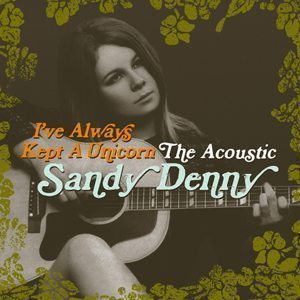 I think her music is quite radical, actually. It’s too easy to say, “Oh, she was a folk singer.” She was a singer-songwriter. She was influenced by country-rock – The Band, The Flying Burrito Brothers and groups like that. She also had a really strong sense of melody and was grounded in classical music. And I think that comes out in her songs. The big shift when you get to the 70s is: prior to Fotheringay she wrote everything on the guitar – so again that takes you back to folk music. But from 1971 onwards, she wrote almost everything at the piano, which freed her up a lot more and brought all these other influences into play.
I think her music is quite radical, actually. It’s too easy to say, “Oh, she was a folk singer.” She was a singer-songwriter. She was influenced by country-rock – The Band, The Flying Burrito Brothers and groups like that. She also had a really strong sense of melody and was grounded in classical music. And I think that comes out in her songs. The big shift when you get to the 70s is: prior to Fotheringay she wrote everything on the guitar – so again that takes you back to folk music. But from 1971 onwards, she wrote almost everything at the piano, which freed her up a lot more and brought all these other influences into play.
When you listen to this collection, do you hear songs that could have remained in this unadorned state, as opposed to the versions that were later released?
Even though all her fans and fellow musicians would say they wished she’d made an acoustic solo album, if you think about it, it wasn’t particularly the norm at the time. And this is the other thing: there weren’t that many other female singer-songwriters around in the UK. The ones that were weren’t that successful – they’d have one hit and that was it. I guess the most successful female singer-songwriter, unless you count Linsey De Paul, who wrote pop hits, was Joan Armatrading. But the difference between Sandy and Joan is that Joan doesn’t have that folk background. I think her songs have that emotional, simple, almost Van Morrison-like aspect to them. Sandy’s songs didn’t have that. They were far more complex and lyrically opaque at the time.
Do you think Sandy would ever have come round to making an acoustic record?
I think so. The reason this collection works is that she tended to record her music and vocals first, and everything else was added afterwards. Plus a lot of the versions on this collection are demos, which are just Sandy at the piano or on the guitar. That’s the way she recorded.
One of the great things about this collection is that it’s effectively – you can’t say it’s her “greatest hits” because she didn’t have any hits – but it’s effectively her best-known songs, and most of her best songs, in terms of ‘Who Knows Where The Time Goes?’, ‘Solo’, ‘John the Gun’, ‘One More Chance’ and a lot of material from the Sandy album plus criminally overlooked songs such as ‘No End’, ‘The Optimist’ or ‘What is True’.
She did have this predilection for over-producing herself, and actually encouraging the people she worked with to lay on the strings on with a trowel, or to embellish too much. A lot of the blame for that gets attached to either Trevor Lucas, who produced a lot of the albums, or John Wood, who engineered them. She says about her first solo album that the reason it sounded like it did was because John Wood was a “string freak”. That’s a defence mechanism, because she wanted those arrangements even if they didn’t always turn out as she hoped they would.
The likes of producer Joe Boyd really wanted Sandy to go truly solo, but whenever she went on tour she would surround herself with a band. So asides from the defence aspect, is there an element of Sandy simply wanting to have fun with other musicians?
Oh yes, though after the Sandy album [in 1972] she actually spent most of the year performing solo. She did a whole American tour: a month of dates, just her at the piano. And I think that was a pretty awful experience for her, because she was playing stadiums with people like Loggins And Messina or the Steve Miller Band, though she enjoyed touring with Randy Newman.
What is interesting is that she did do this famous – to people who were there and knew her – show at a club called The Howff, in London’s Primrose Hill, at the time that Like An Old Fashioned Waltz was due to come out [1974]. That album is drenched in strings, but she did this show where she previewed all the songs solo and it easily got the best reviews she ever had. People who were there said it was astonishing. Once she’d gotten over her nerves, which would take a couple of songs, she was absolutely captivating. That show was actually taped. John Wood recorded it on Ronnie Lane’s mobile, but the tapes have gone missing.
Any chance of them ever turning up?
It seems unlikely, but you never know. If it’s something that’s completely mis-filed and under a completely different name, who knows? What’s interesting is that Andrew Batt, who compiled I’ve Always Kept A Unicorn, did find three unreleased demos from The Bunch’s album. The Bunch was post-Fotheringay: Trevor produced and it used all the Fotheringay musicians and the Fairport musicians. Essentially it was folk-rock musicians making a rock’n’roll album. Andrew found these three demos, which are absolutely fantastic. Sandy was a big Buddy Holly fan – had been since she was a kid – and she does two Buddy Holly songs and a version of The Everly Brothers’ ‘When Will I Be Loved’, which she sings with Linda Thompson, one of her best friends. And they’re absolutely wonderful. The duet with Linda is one of those things you’d say was worth the price of admission alone. It was probably just done in one take, Richard playing guitar, and Linda and Sandy singing.
Everyone thinks of Sandy as a folk musician, but findings like this shine a light on her wider influences…
I don’t think people should be surprised that she liked rock’n’roll or The Beatles. She was a teenage girl in the early 60s when this whole revolution in music was happening. In a way, you can almost argue that it’s more surprising that she ended up singing folk music… Maybe that separates her from a lot of the other folk singers on the circuit, because I think they were more pure. They liked pure folk music, or they liked blues.
Trevor made this comment that even when she was playing folk clubs she was neither fish nor fowl. She could stand up and sing a traditional song – and she was a brilliant singer and people would be absolutely captivated by it – but then she’d play the guitar and sing a Bob Dylan song, and they’d say, “Why are you doing this?”
How does the collection trace her development as a songwriter?
I think it does it really well: across two discs you get a really good selection of some of her best songs. One of the things that really stands out are the songs from Rendezvous, which was her last album, and the one a lot of people dislike. It is a bit of a mess, but you could argue that it features her best collection of songs, in terms of their structure and some of the things she’s trying out. There are songs on there that are much more soulful than anything she’s done before, and much simpler. It came out in ’77, but didn’t even get released in America, and Sandy died within a year, so people say her career was on the way down. But if you hear those songs in the context of this collection, unadorned, it completely reverses the notion that, creatively, she was in a downward spiral. Anything but. On their own, with just her piano and guitar, all those songs work really well. ‘One Way Donkey Ride’ and ‘I’m A Dreamer’ are fantastic.
So I’ve Always Kept A Unicorn shines a light very specifically on her songs and songwriting…
It does, but I think the process was already underway. The other thing you have to remember is that, during her lifetime, people saw Sandy as a singer first and a songwriter second – and, to some extent, people always remember her more as a singer with Fairport Convention. Being a member of Fairport Convention is a really hard thing to shake off; it casts a really long shadow. She never got away from it, and Richard Thompson’s still under it after about 40 albums in almost as many years.
In the last few years, people have been appreciating Sandy more for her songwriting. There was a tour a few years ago of people singing her songs; one of the highlights for me was that PP Arnold sang a couple – she just belted them out. You could hear some of those songs and think Aretha Franklin could have recorded them. Sandy was moving in that direction. And, if anything, this collection makes it easier to hear the songs themselves because they’re more naked than before.
Purchase I’ve Always Kept A Unicorn: The Acoustic Sandy Denny here:





